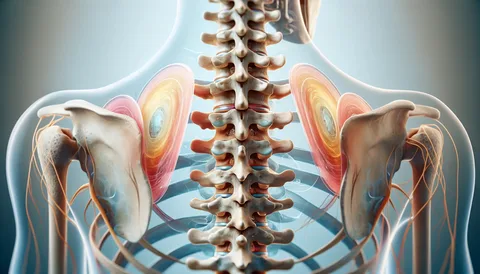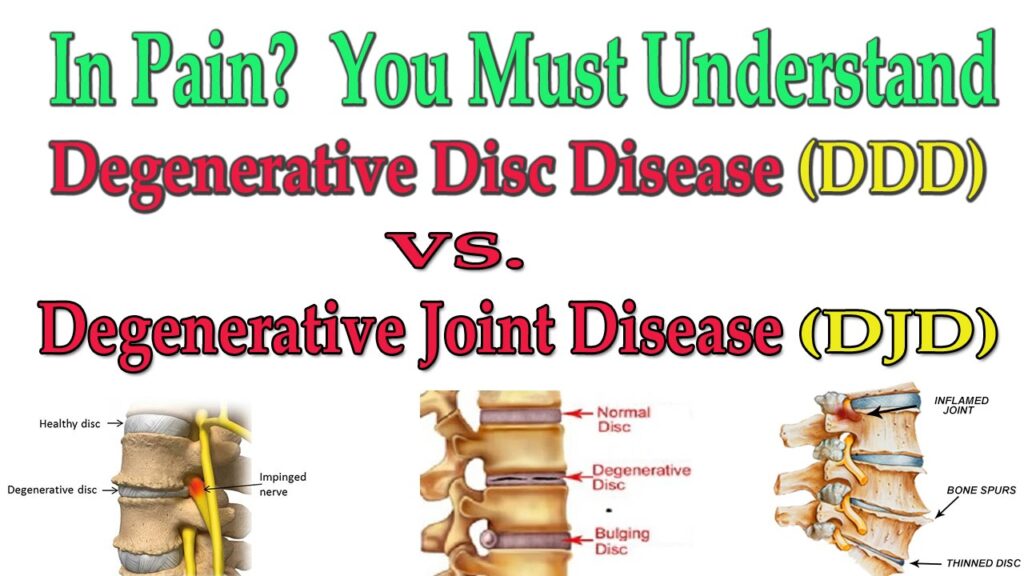The following are the things to avoid with degenerative disc disease and the essential lifestyle tips to be observed to manage the pain and prevent the deterioration.
Degenerative Disc Disease (DDD) is a widespread disease, which takes place as discs in the spine lose flexibility, elasticity, and ability to absorb shock with time. Truth be told, even though the condition of DDD sounds like disease, the condition is a normal aspect of aging in a large section of the people. To some people however it may lead to persistent pains, tenderness, and mobility.
So the good news is that you can stop disc degeneration by making changes to your lifestyle, slow down the process, and manage the symptoms. Know what to avoid is one of the most effective ways of managing DDD. This article is going to be devoted to major habits, movements and conditions that should be excluded with degenerative disc disease and tips on how to preserve your spine and have a better life.
Heavy Lifting and improper lifting method to be avoided
Avoidance of heavy lifting items particularly with a bad posture or technique is one of the most important precaution measures to be taken by a person with DDD. When you use your back and lift weights or such heavy things that you load yourself with rather than using your legs, then you exert too much pressure to the already strained discs and run the risk of the disc herniation and nerve pressure as a result.
Alternative action:
- Do not twist during a lift.
- Seek assistance in carrying heavy objects or assistive aids such as carts or even belts.
Evading High Impact Activities
Activities where there is jarring or repetitive impacts e.g. running on hard surfaces, jumping, contact sports ( footy or basket ball) may aggravate wear and tear of the disc. Such actions lead to greater spinal compression which can aggravate pain or inflammation.
Better alternatives:
Use low-impact activities such as swimming, and cycling, and walking.
Opt for yoga or Pilates which concentrate in strengthening, flexibility, as well as aligning of the spine.
Do Not Sit or Stand a Long Time
Sitting/standing in the same pose over a long time like sitting at the desk or standing in the workplace may lead to putting pressure on the spinal discs. And being seated in a wrong posture repeatedly exposes the lumbar spine to a compressed state and limits the flow of blood in the discs.
Reduction tips to help avoid strain:
- A lumbar support ergonomic chair.
- Change sitting to standing positions when possible, you can make use of a standing desk.
Poor Posture should be avoided
The posture can be a posture that can make DDD worse such as Slouching, hunching your phone/ computer, or standing in a misaligned hip position. Unnatural posture adds in creating an imbalance in the load occurring along the spine, causing premature erosion to certain discs.
Make your posture better:
- With back straight and unhunched shoulders.
- When sitting or standing, trying to make your ears sit in line with your right shoulder.
- Employing lumbar support and ergonomic equipment in order to be in a neutral spine position.
Avoid Smoking
Smoking lowers the oxygenation of your discs in the spine, which inhibits all repair and regeneration.things to avoid with degenerative disc disease Research indicates that there is a close connection between tobacco smoking and premature wear of the spine. Nicotine places a limit on blood circulation as well as can result in irritation and aches.
Take action:
- In case you smoke, discuss smoking cessation plan, and schedule with your physician.
- Stopping smoking will have a great impact on the health of discs and spine work in general.
Healthy strategies:
- Eat balanced diet comprising foods that have anti-inflammatory properties (such as leafy green vegetables, berries and omega-3 fatty acids).
- Follow a light exercise routine to help you shed calories and build muscles of support.
Do not overlook Signals of Pain
The use of pain by the body is to notify you that all is not well. There might be additional harm and the development of chronic diseases when pain is ignored or hidden behind over-the-counter medications.
This is what you ought to do:
- Write down your pain and mobility rates in a journal.
- In case of pain of a significant intensity or a pain that causes complications in the functioning of daily life, seek professional advice.
- Imaging or diagnostic tests can be followed up when they are necessary.
Shun the positions in which one sleeps in poor positions
The position you sleep in an influence the spinal alignment and increase the suffering that DDD causes, mostly on the lower back and neck.
Best sleeping secrets:
- Avoid sleeping in a supine position (in stomach) that results in hyperextension on the spine.
- To allow the proper alignment, you should sleep either on your back with the pillow beneath your knees or side with the pillow in the cavity between legs.
- Get a supportive firm mattress that will follow the natural elegance of your spine.
Do not miss basic exercises
A well-built core helps to maintain body balance and protect spine and the spinal discs. Spurning the exercises strengthening the core will make you unstable and exposed to the risk of injury or further deterioration.
Incorporate in your schedule:
- Soft core strengthening work such as bridges, planks as well as pelvic tilts.
- Do not use aggressive or unsupported abdominal crunches that puts strain on the spine.
Prevention of Self-Diagnosis and Procrastination of Medical Treatment
Most individuals having the things to avoid with degenerative disc disease will make attempts to treat it with self medication and a lot of them use rests or the common pain killers with little or no knowledge about the cause of their condition. An untimely approach to professional diagnosis or treatment can give the disease time to develop.
Take action:
- Visit a spine doctor or physical therapist.
- Obtain an individualized treatment program consisting of physical therapy, drugs, or any other interventions.
- Go beyond medications with medical supervision using other options, such as chiropractic medicine, massage, or injection.
Conclusion
Multilevel degenerative disc disease does not need to run your life but there are things you must learn and implement that may help keep the disease under control. Substituting heavy lifting and poor posture, smoking, and the other leading factors among the high-risk ones, you can significantly decelerate the development of DDD and help yourself reduce the daily level of discomfort.
Add a proactive strategy to these avoidance strategies: such as maintaining regular low-impact exercise, proper nutrition, and excellent professional medical attention and you will be in a much better position to safeguard your spine and improve the quality of your life.

Dr. Hamza is a medical content reviewer with over 12 years of experience in healthcare research and patient education. He specializes in evidence-based health information, medications, and chronic disease management. His reviews are based on trusted medical sources and current clinical guidelines to ensure accuracy, transparency, and reliability. All content reviewed by Dr. Hamza is intended for educational purposes only and should not be considered a substitute for professional medical advice











